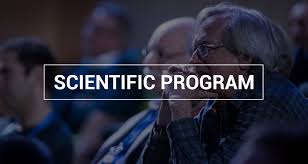
Biography
Biography: Valerie Dzubur
Abstract
There are more than six million cancer survivors over the age of 65 in the United States. And there are many reasons why more and more people are becoming long-term cancer survivors including; new screening guidelines, access to genetic testing, early detection, advanced diagnostic tools and most importantly new innovative treatments. According to the Institute of Medicine (IOM) Report, people diagnosed with cancer have an estimated 64% chance of surviving more than five years. One significant exception is ovarian cancer because an early diagnosis is still difficult. Healthcare providers often overlook the early warning signs. There 22,200 new cases of ovarian cancer each year in the United States and of those 14,240 will die often as a result of a late diagnosis. It is also important to understand that a diagnosis of ovarian cancer affects the whole family because 20-25% of these cancers are related to inheritable genetics that effect both men and women. In-addition, the family experience of a cancer diagnosis goes well beyond the genetic implications of risks to other members, including both care and the potential for the loss of a loved one. Even as science transforms a cancer diagnosis into a chronic disease the family must learn new ways to live within this realty. This presentation will focus on the family experience of ovarian cancer from diagnosis to chronic disease and loss. A particular emphasis on the importance educating healthcare providers to be able to make an early diagnosis is emphasized along with the family experience.

